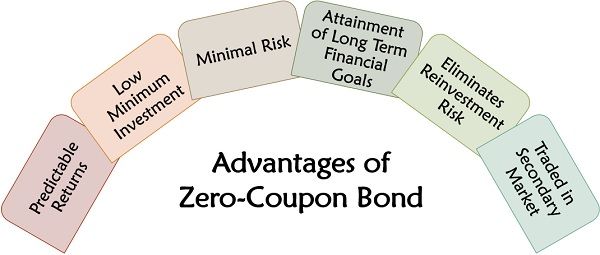Understanding the Basics of Zero-Coupon Bonds
Zero-coupon bonds are a type of fixed-income investment that differs significantly from traditional bonds. The most notable distinction is that zero-coupon bonds do not make regular interest payments to investors. Instead, they are sold at a discount to their face value and redeemed at maturity for the full face value, providing a single, lump-sum payment. This unique characteristic raises an important question: which of the following is true of a zero-coupon bond? To answer this, it’s essential to understand the fundamental principles of zero-coupon bonds and how they differ from other investment options. In essence, zero-coupon bonds offer investors a single, upfront payment in exchange for forgoing regular interest payments, making them an attractive option for those seeking a low-risk investment with a fixed return.
How to Identify the Key Features of a Zero-Coupon Bond
When evaluating a zero-coupon bond, it’s essential to understand its key features, which can significantly impact its performance. Three critical components to consider are the face value, maturity date, and credit rating. The face value, also known as the principal, is the amount the bondholder will receive at maturity. The maturity date is the specific date when the bond expires and the face value is repaid. The credit rating, assigned by rating agencies such as Moody’s or Standard & Poor’s, reflects the issuer’s creditworthiness and ability to meet their debt obligations. A higher credit rating generally indicates a lower default risk, making the bond a more attractive investment option. By carefully examining these features, investors can better assess the bond’s potential returns and risks, ultimately helping them make informed investment decisions. For instance, which of the following is true of a zero-coupon bond? Understanding the answer to this question can help investors navigate the complexities of zero-coupon bonds and make more informed investment choices.
The Advantages of Investing in Zero-Coupon Bonds
Zero-coupon bonds offer several benefits that make them an attractive investment option for those seeking a low-risk, fixed-income investment. One of the primary advantages is their potential for higher returns compared to traditional bonds. Since zero-coupon bonds do not make regular interest payments, the issuer can offer a higher return at maturity, making them more appealing to investors seeking a higher yield. Additionally, zero-coupon bonds often carry a lower default risk, as the issuer is only obligated to repay the face value at maturity, rather than making regular interest payments. This reduced risk can provide investors with a sense of security and stability. Furthermore, zero-coupon bonds can offer tax advantages, as the interest earned is not subject to taxation until maturity. This can be particularly beneficial for investors in higher tax brackets. By understanding these benefits, investors can better appreciate the value of zero-coupon bonds and make informed decisions about their investment portfolios. For instance, which of the following is true of a zero-coupon bond? Recognizing the answer to this question can help investors unlock the full potential of zero-coupon bonds and achieve their long-term financial goals.
Debunking Common Myths About Zero-Coupon Bonds
Despite their potential benefits, zero-coupon bonds are often misunderstood, leading to common misconceptions about their riskiness and liquidity. One of the most prevalent myths is that zero-coupon bonds are inherently riskier than traditional bonds due to their lack of regular interest payments. However, this is not necessarily true. In reality, zero-coupon bonds can offer a lower default risk, as the issuer is only obligated to repay the face value at maturity. Another myth is that zero-coupon bonds are illiquid, making it difficult for investors to sell their bonds before maturity. While it is true that zero-coupon bonds may have lower liquidity than other investment options, this does not mean they are impossible to sell. In fact, many investors find that zero-coupon bonds can be easily sold on the secondary market. By understanding the facts behind these myths, investors can make more informed decisions about their investment portfolios. For instance, which of the following is true of a zero-coupon bond? Recognizing the answer to this question can help investors separate fact from fiction and unlock the full potential of zero-coupon bonds.
What Sets Zero-Coupon Bonds Apart from Other Investment Options
Zero-coupon bonds occupy a unique space in the investment landscape, offering a distinct set of characteristics that set them apart from other investment options. Compared to stocks, zero-coupon bonds provide a fixed return, whereas stocks carry a higher level of uncertainty and volatility. Additionally, zero-coupon bonds are generally less risky than stocks, as they are backed by the creditworthiness of the issuer. In contrast to mutual funds, zero-coupon bonds offer a more predictable return, as the interest rate is fixed at the time of purchase. Furthermore, zero-coupon bonds are often more liquid than mutual funds, allowing investors to easily sell their bonds on the secondary market. When compared to CDs, zero-coupon bonds typically offer a higher return, albeit with a slightly higher level of risk. By understanding these differences, investors can make informed decisions about their investment portfolios and determine whether zero-coupon bonds are a good fit for their individual needs. For instance, which of the following is true of a zero-coupon bond? Recognizing the answer to this question can help investors appreciate the unique strengths and weaknesses of zero-coupon bonds and make more informed investment decisions.
The Role of Zero-Coupon Bonds in a Diversified Investment Portfolio
Diversification is a cornerstone of investing, and zero-coupon bonds can play a vital role in a well-balanced portfolio. By incorporating zero-coupon bonds into a diversified investment strategy, investors can reduce risk and increase potential returns. This is because zero-coupon bonds offer a unique combination of fixed returns, low default risk, and tax advantages, making them an attractive addition to a portfolio. For instance, which of the following is true of a zero-coupon bond? Recognizing the answer to this question can help investors understand how zero-coupon bonds can contribute to a diversified portfolio. By allocating a portion of their portfolio to zero-coupon bonds, investors can reduce their exposure to market volatility and create a more stable source of returns. Additionally, zero-coupon bonds can provide a hedge against inflation, as their returns are not affected by changes in interest rates. By incorporating zero-coupon bonds into a diversified portfolio, investors can create a more resilient and effective investment strategy, better equipped to weather market fluctuations and achieve long-term financial goals.
Real-World Examples of Zero-Coupon Bonds in Action
Zero-coupon bonds are not just theoretical investment instruments; they have practical applications in various real-world scenarios. One notable example is government savings bonds, such as U.S. Series EE savings bonds, which are a type of zero-coupon bond. These bonds are designed to encourage individuals to save money and are backed by the full faith and credit of the U.S. government. Another example is corporate debt offerings, where companies issue zero-coupon bonds to raise capital for various business purposes. For instance, a company may issue a zero-coupon bond with a face value of $1,000 and a maturity date of 10 years, allowing investors to purchase the bond at a discounted price and receive the full face value at maturity. Which of the following is true of a zero-coupon bond? Understanding the answer to this question can help investors appreciate the practical applications of zero-coupon bonds in real-world scenarios. Additionally, zero-coupon bonds are often used in structured products, such as zero-coupon certificates of deposit (CDs), which offer a fixed return over a specific period. By examining these real-world examples, investors can gain a deeper understanding of how zero-coupon bonds work and how they can be used to achieve their investment goals.
Conclusion: Separating Fact from Fiction in Zero-Coupon Bonds
In conclusion, zero-coupon bonds are a unique and valuable investment option that can provide investors with a range of benefits, including higher returns, lower default risk, and tax advantages. By understanding the true nature of zero-coupon bonds, including their key features, advantages, and practical applications, investors can make informed decisions about whether to include them in their investment portfolios. It is essential to separate fact from fiction when it comes to zero-coupon bonds, recognizing that they are not inherently riskier or less liquid than other investment options. Instead, which of the following is true of a zero-coupon bond? They offer a distinct set of characteristics that can be leveraged to achieve specific investment goals. By recognizing the value of zero-coupon bonds, investors can unlock their full potential and create a more diversified, resilient, and effective investment strategy.







